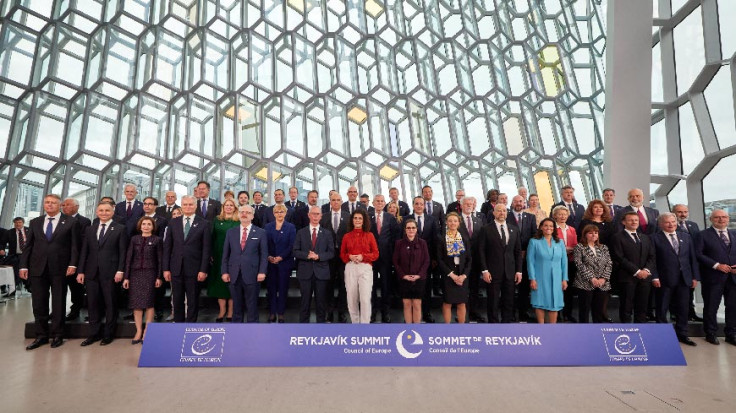UK PM meets European Commission President whilst Council of Europe seeks to hold Russia accountable
Rishi Sunak has met with the President of the European Commission at the Council of Europe summit in Iceland. An agreement has also been forged around a register of damage to hold Russia accountable.

As the European international community continued to focus on the Russo-Ukraine war, the Council of Europe met in Reykjavik, Iceland from the 16th to the 17 of May.
A distinct international organisation from the EU, the Council of Europe has 46 member-states, including the 27 member-states of the EU, and refers to itself as "the continents leading human rights organisation". Russia was excluded from the Council of Europe in March 2022 following Putin's decision to Invade Ukraine.
The Council of Europe refer to the Iceland summit as a "historic opportunity" to consolidate commitment to its core values in the face of "new threats to human rights and democracy", and to achieve justice for victims of the Russian invasion of Ukraine.
Meanwhile, at the summit, British Prime Minister Rishi Sunak also met with Ursula von der Leyen, the President of the European Commission (EC).
The PM's meeting with the president of the EC follows his recent meeting with President Zelenskyy of Ukraine, with Britain promising the delivery of more missiles and drones. President Zelenskyy also hopes to create a "jets coalition" to assist in Ukraine's resistance against Russia, despite the supply of warplanes being ruled out by France.
The meeting also comes ahead of the G7 summit at Hiroshima later this week. Like the Council of Europe, the G7 is bound by a commitment to the liberal democratic order. The G7 summit will also focus on the Russo-Ukraine war, with G7 member-states united in their opposition to Russia's objectives.
The PM informed Von der Leyen about the Ukrainian President's visit to Britain. As you might expect, the two agreed on the need to maintain support for Ukraine, "including through sanctions on Russia".
Trade was also discussed, with an agreement between the two leaders on the importance of connections between Britain and the EU and the driving of "mutual economic growth". Agreed back in December 2020, the Trade and Cooperation Agreement arranged between Britain and the EU frames the current post-Brexit relationship.
The two leaders also agreed to "strengthen cooperation between the EU and UK on migration", with British agencies and Frontex (the European Border and Coast Guard Agency) set to enter into a "new working arrangement".
With ongoing difficulties over immigration across the English Channel, controversy has surrounded the government's immigration bill, which is in potential violation of the European Convention on Human Rights according to an immigration expert. The bill aims to prevent people who enter Britain illegally from staying and is currently at the committee stage in the House of Lords in its progress through parliament.
The European Convention on Human Rights is an international treaty established between the member-states of the Council of Europe. The Council of Europe was founded after the Second World War to promote the rule of law, democracy, and human rights. All member-states of the council have signed the European Convention on Human Rights, a treaty which Britain originally helped to design.
Moreover, Britain's involvement with the Council of Europe is a key example of membership of the wider European international community, despite Brexit.
The meeting between Sunak and Von der Leyen is not the only point of interest.
Signed by most of its members, the Council of Europe have announced the creation of a "register of damage" to record evidence of the "damage, loss or injury" caused by the Russo-Ukraine war.
The register of damage is intended to be the "first component of a future compensation mechanism". Regarding initiatives to operationalise the register, a "claims commission and compensation fund" could be employed to highlight Russia's obligation to pay for the damage caused by "its war of aggression".
According to Katrín Jakobsdóttir, the Prime Minister of Iceland, the register constitutes an "important step towards accountability for crimes committed in Russia's brutal war and a strong message of support to Ukraine".
Furthermore, the Prime Minister of Ukraine, Denys Shmyhal, invited other countries from across the world to join the register to demonstrate support for holding Russia accountable for its actions. Crucially, whilst not members of the council, Canada, Japan, the US and the EU have also agreed to establish the register.
© Copyright IBTimes 2025. All rights reserved.




















